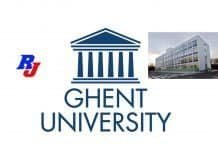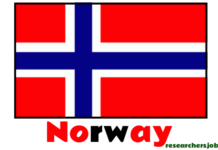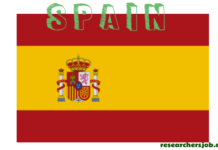Ph.D. Scholarship: Metal Nano-Catalysts: This scholarship opportunity is aimed at supporting Ph.D. students interested in the use of machine learning (ML) and quantum chemistry for the innovative design and characterization of metal/metal-oxide cluster-based nanocatalysts. The project focuses on advancing sustainable chemistry by enhancing the stability and catalytic activity of nanocatalysts through cutting-edge computational techniques.
Ph.D. Scholarship Position: ML-Assisted Design and Characterization of Oxide-Supported Metal Nano-Catalysts
Designation
Ph.D. Scholarship Position
Table
| Field | Details |
|---|---|
| Research Area | Metal Nano-Catalysts and Sustainable Chemistry |
| Location | Charles University in Prague |
| Eligibility/Qualification | Candidates must have a background in Chemistry, Materials Science, Chemical Engineering, or relevant fields, along with proficiency in computational modeling and machine learning. |
| Description | The project focuses on the design of single atom and sub-nanometer metal particles on oxide supports to maximize catalytic activity while minimizing material usage. It includes hands-on experience with state-of-the-art ML techniques, computational methods, and collaborations with international research teams. |
| How to Apply | Interested candidates should submit their application, including a CV, cover letter, and relevant documentation, to [Specify how to apply, e.g., email, application portal]. |
| Last Date for Apply | Until position filled |
Research Area
The focus of the research revolves around:
- Interactions of metal clusters with oxide surfaces.
- Control of cluster motion and growth.
- Effects of particle size and shape on catalytic applications.
- Utilization of alloying effects to enhance catalyst performance.
- Selection of optimal systems for specific green chemistry applications.
Eligibility/Qualification
Candidates are expected to have:
- A Master’s degree or equivalent in relevant fields such as Chemistry, Materials Science, or Chemical Engineering.
- Experience and proficiency in computational modeling.
- Familiarity with machine learning techniques.
- Strong analytical and problem-solving skills.
Description
This Ph.D. project, supervised by Dr. Christopher James Heard, involves the use of machine learning and quantum chemistry-supported simulations for the bottom-up design of supported nanocatalysts aimed at sustainable chemistry applications. The project will leverage computational techniques to explore and address the grand challenges in supported metal nano-catalysts, facilitating experimental verification through collaborations with international research partners.
How to Apply
To apply for this scholarship, candidates should prepare:
- A comprehensive CV
- A cover letter detailing your motivation and relevant experience
- Transcripts and any other required supporting documents
Applications should be sent to [insert application email or portal link].
Last Date for Apply
Until position filled









